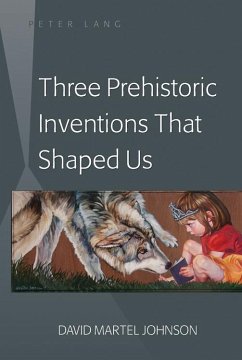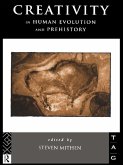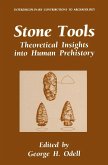Both Darwin and neo-Darwinist theorists like Stephen Jay Gould were wrong to suppose that human nature and the human mind arose out of biological and historical sources alone. Three Prehistoric Inventions That Shaped Us argues that humans are very different from other animals in certain respects and, because of those respects, some of the most important sources of the particular sort of human nature we possess at the present moment, and of the special types of thinking in which we now are able to engage, were cultural ones. To be more specific, it shows that our present-day human nature was shaped in fundamental ways by at least three intellectual inventions that some of our prehistoric ancestors made - namely, the inventions of religious consciousness, of domestication of animals, and of syntactically organized language.
Dieser Download kann aus rechtlichen Gründen nur mit Rechnungsadresse in A, B, BG, CY, CZ, D, DK, EW, E, FIN, F, GR, HR, H, IRL, I, LT, L, LR, M, NL, PL, P, R, S, SLO, SK ausgeliefert werden.
"In this highly readable and engaging book, David Martel Johnson seeks an explanatory account of human nature that moves beyond the divided camps of the cultural historians and the evolutionary scientists. As he develops his original and distinctive argument about the development of humankind he takes readers on a journey that touches archaeology, anthropology, evolutionary biology, linguistics, and philosophy. En route Johnson challenges many existing assumptions about the origins of language; provokes readers to rethink many of the presuppositions that they have taken for granted, and provides in their place arguments that are sure to provoke lively debate. This unconventional but nonetheless important book calls into question ideas that philosophers have tacitly accepted but never properly examined." (Jan Derry, Philosophy Section, Institute of Education, University of London)









